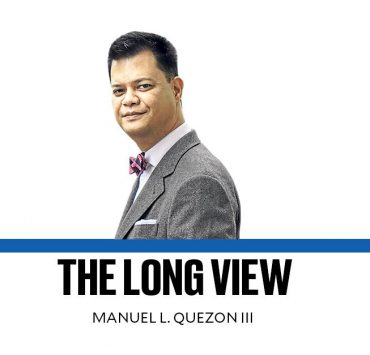Shunning budget insertions

The Department of Budget and Management is scheduled to submit to Congress next week the National Expenditure Program or the “President’s Budget” for 2026 that will run up to P6.793 trillion, thus kicking off the annual grueling and time-bound exercise that promises, however, to be radically different this year.
Stung by charges that Congress—which has the sole power of the purse under the Constitution—had mangled the 2025 budget because of last-minute earmarks or insertions passed by the bicameral conference committee, some members of the 20th Congress are determined to make the budget approval process more transparent and inclusive, thus preventing a repeat of previous blunders.
President Marcos had already set the right tone during his last State of the Nation Address, when he warned he will not sign the 2026 budget if it would not align with priorities outlined in Malacañang’s expenditure program with quality education, health care, and workforce upskilling as well as infrastructure getting the lion’s share.
“For the 2026 National Budget, I will return any proposed general appropriations bill that is not fully aligned with the National Expenditure Program,” the President warned. “And further, I am willing to do this even if we end up with a reenacted budget. he added, in one of the most-applauded portions of his fourth Sona.
‘Golden age of transparency’
Mr. Marcos had specifically referred to poorly executed and corruption-ridden flood control projects that were highlighted following the recent floodings in Metro Manila and other parts of Luzon due to a series of weather disturbances that enhanced the southwest monsoon or “habagat.”
The disdain and the harsh words, however, should apply to all questionable projects that somehow end up in the national budget approved by Congress and then signed by the President into the General Appropriations Act.
Sen. Sherwin Gatchalian, chair of the Senate finance committee, had challenged the chamber to usher in a “golden age of transparency” by making public minutes of meetings, transcripts of the debates plus other documents taken up in the middle of the actual budget approval process—where insertions, alterations, additions, and subtractions are supposedly done in closed door meetings.
That desire has also been expressed by other legislators from both chambers of Congress and from different parties making similar calls, singling out the bicameral conference committee, composed of select members of the House and the Senate who are supposed to harmonize differing items in the House and the Senate versions of the national budget.
Mounting calls from public
Minority Leader Vicente C. Sotto III, along with Senators Panfilo Lacson, Risa Hontiveros, Loren Legarda, Juan Miguel Zubiri, Francis “Kiko” Pangilinan, and Bam Aquino, filed Senate Joint Resolution No. 1, asking that the bicameral deliberations be open to the public as well as a comparison of the Senate and House versions of bills.
“We owe it to the Filipino people to show transparency on how the taxes are allocated. Let the public see what we’re doing. That’s the least we can do in a democracy,” Sotto said.
Lacson also pointed out that while opening the process to the public, including the bicameral conference proceedings to the public, “may not fully prevent the insertion of ‘pork barrel’ funds, at least the public will be able to pinpoint exactly who among the lawmakers are attempting to do so.”
Even House Speaker Ferdinand Martin Romualdez welcomed mounting calls from the public and civil society for greater public participation in the budget process to ensure that all proceedings will be open for all to see and comment on, instead of kept to within the halls of Congress.
Bigger challenge
Romualdez earlier filed a resolution seeking to institutionalize the “active participation of bonafide people’s organizations as official nonvoting observers in the public hearings of the committee on appropriations on the budget.”
They underscored that by opening up the proceedings, red flags over recent bicameral committee outcomes, such as the creation of new non-regular spending items such as the Ayuda para sa Kapos ang Kita Program, exclusion of critical programs like the PhilHealth National Health Insurance Program from the budget, and unvetted allocations for questionable infrastructure projects can be prevented.
It’s easy to promise transparency; the bigger challenge is for members of Congress to shun the opportunities for corruption hidden in the budget process. It is public knowledge, the President disclosed in his Sona, that a racket in projects exists in the form of kickbacks, initiatives, errata, SOP (or bribe treated as standard operating procedure).
So far, we have not heard of any individual or collective breast-beating about these budgetary insertions that are the breeding ground of corruption and theft of public funds. With no less than the President firing the warning, will these lawmakers now at least make a conscious effort to moderate their greed?

















